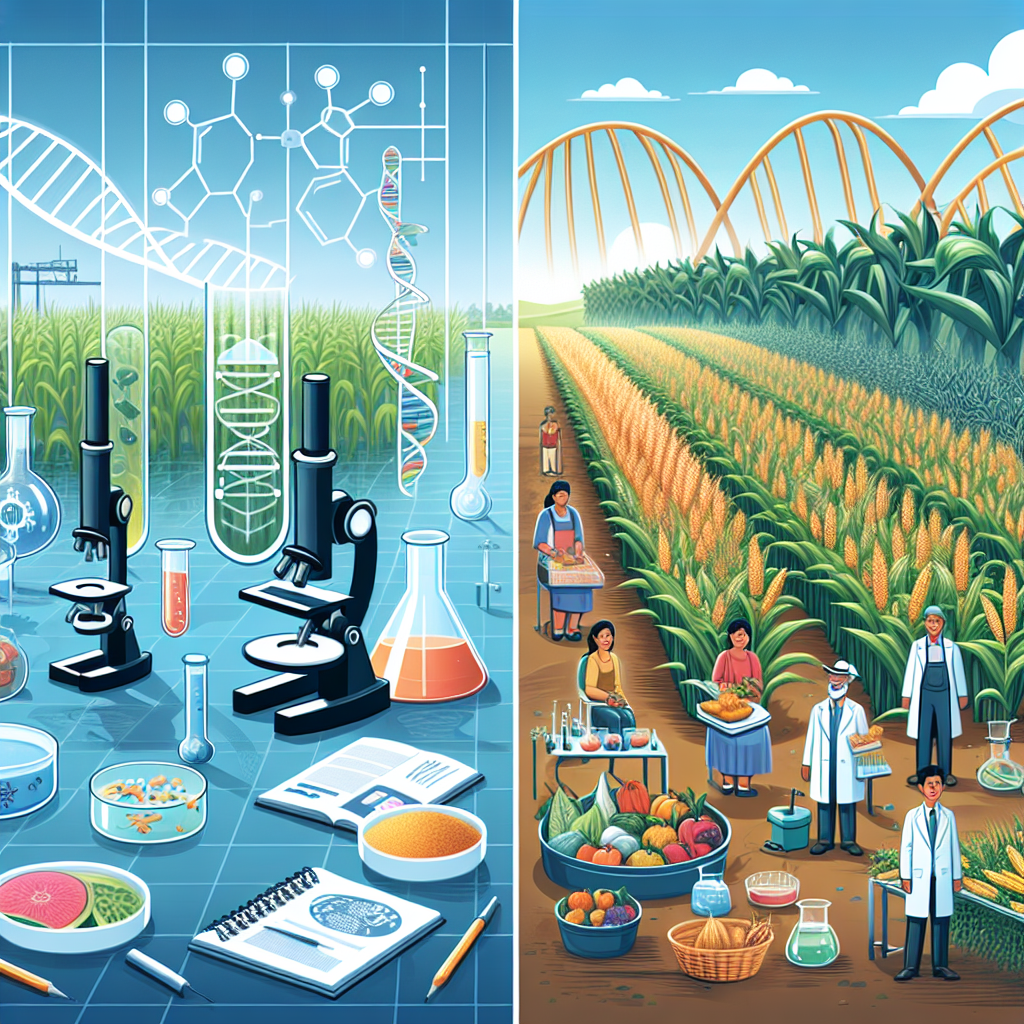[ad_1]
Introduction
The world of biotechnology has ushered in tremendous innovations across various sectors, particularly in food production. These advancements not only aim to enhance crop yield and resilience but also cater to sustainability needs. In this article, we will explore the fascinating applications of biotech innovations in food and how they translate from laboratory experiments to real-world solutions.
Understanding Biotechnology
Biotechnology refers to the manipulation of living organisms or their components to develop products and processes that benefit humanity. This field encompasses genetic engineering, molecular biology, and bioprocessing.
Key Components of Biotechnology in Food Production
- Genetic Modification: Altering the genetic makeup of crops for desired traits.
- Crispr Technology: A precise method for editing genes for trait improvement.
- Microbial Fermentation: Utilizing microorganisms to produce food ingredients or bioactive compounds.
Applications of Biotech in Food Production
Biotech applications in food production are vast and varied. Here are some of the most prominent innovations:
1. Genetically Modified Organisms (GMOs)
GMOs are organisms whose genetic material has been altered to exhibit traits that enhance agricultural productivity, such as:
- Drought resistance
- Pest resistance
- Herbicide tolerance
Real-world examples include Bt corn, which is engineered to resist pest infestations, reducing the need for chemical pesticides.
2. Biofortification
This method aims to enhance the nutritional quality of food crops. Notable instances include:
- Golden Rice: Enriched with Vitamin A to combat deficiency in developing countries.
- Iron-fortified beans: Developed to alleviate iron deficiency anemia.
3. Vertical Farming and Microbial Solutions
Using biotechnological methods, vertical farms leverage controlled environments and microbial solutions to enhance crop growth:
- Microbial inoculants that improve soil health.
- Vertical farms that optimize space and resources, ensuring sustainability.
4. Fermentation Technology
Fermentation processes enhance flavor, preservation, and health benefits. Examples include:
- Yogurt cultured with beneficial bacteria.
- Plant-based meat alternatives produced through fermentation.
5. Sustainable Practices
Biotechnology promotes sustainable agricultural practices that reduce environmental impact:
- Precision agriculture that optimizes input usage.
- Biodegradable materials derived from biomass for packaging.
Data Insights on Biotech Innovations
| Year | Global GMO Area (Million Hectares) | Percentage of Global Crop Production |
|---|---|---|
| 1996 | 1.7 | 0.4% |
| 2006 | 102.0 | 18.0% |
| 2016 | 185.1 | 36.0% |
| 2021 | 191.7 | 39.0% |
This data shows a consistent increase in biodegradable crop areas, reflecting the growing acceptance of biotechnological advancements worldwide.
“Biotechnology is the key to solving global food security challenges.” – Agri-Business Insider
Challenges and Considerations
Despite the promising benefits, several challenges must be addressed:
- Public Perception: Misinformation and fear regarding GMOs can hinder acceptance.
- Regulatory Challenges: Many countries have strict regulations that can delay product introduction.
- Environmental Concerns: Potential ecological impacts, including biodiversity loss.
Conclusion
Biotechnology is transforming food production by enhancing quality, sustainability, and productivity. With ongoing research and innovation, the future of food production looks promising as these lab-developed solutions move into real-world applications. The path ahead involves addressing public concerns, ensuring regulatory compliance, and augmenting environmental standards to truly capitalize on the potential of biotech innovations.
Frequently Asked Questions (FAQs)
What are genetically modified organisms (GMOs)?
GMOs are organisms whose genetic material has been altered using genetic engineering techniques to introduce desired traits, such as pest resistance or improved nutritional value.
Are biotechnological products safe to eat?
Yes, numerous scientific studies have confirmed that approved biotech products are safe for human consumption. Regulatory bodies assess the safety of GMOs before they enter the market.
How do biotechnological innovations promote sustainability?
Biotech innovations reduce the need for chemical inputs, improve resource efficiency, and enhance resilience to climate change, contributing to sustainable agricultural practices.
[ad_2]
